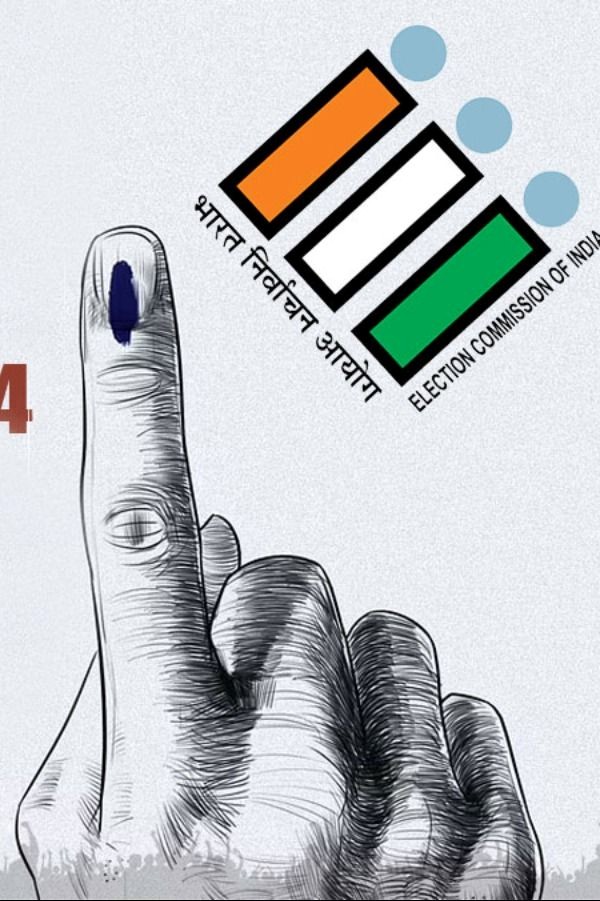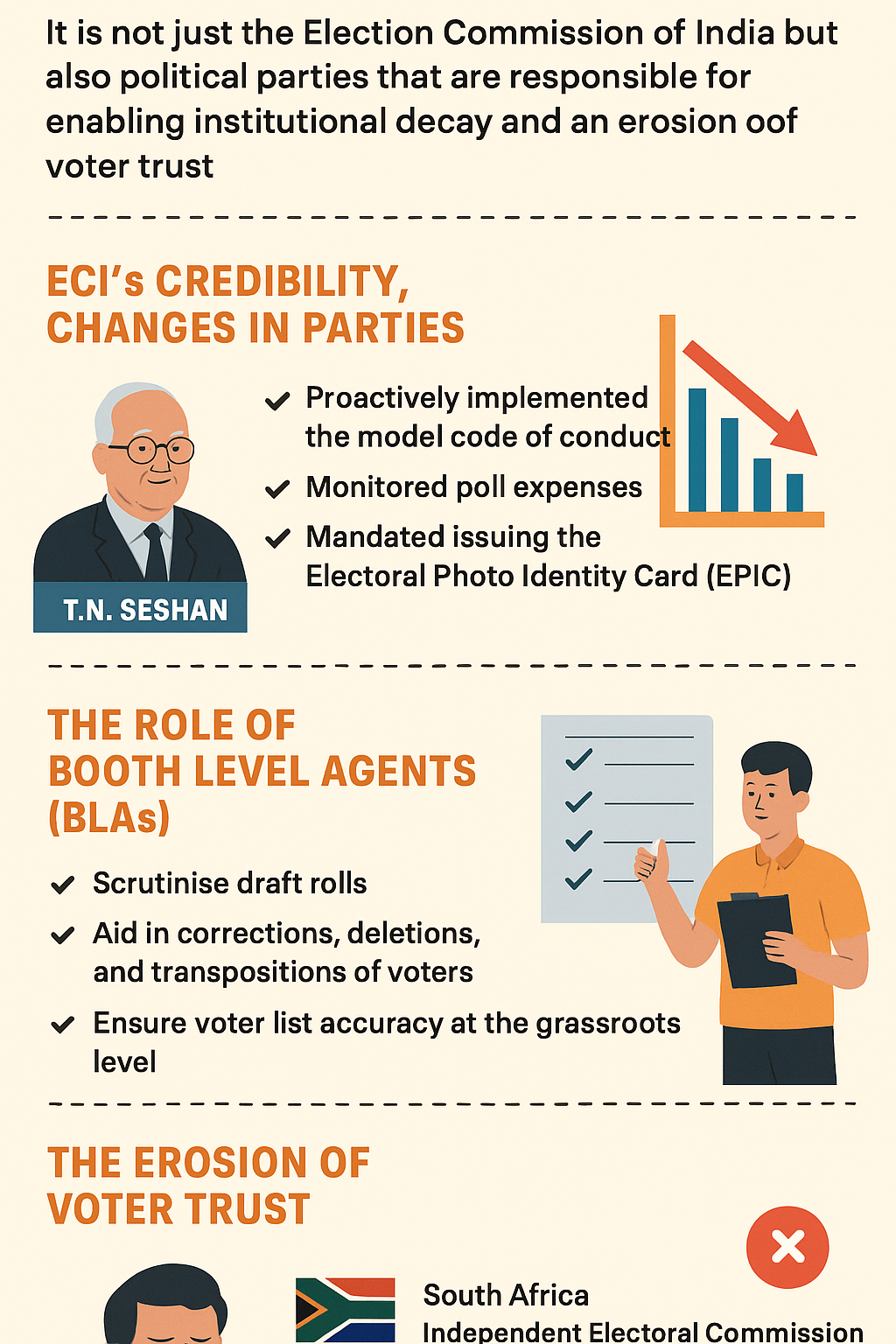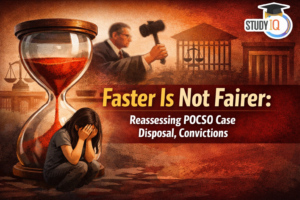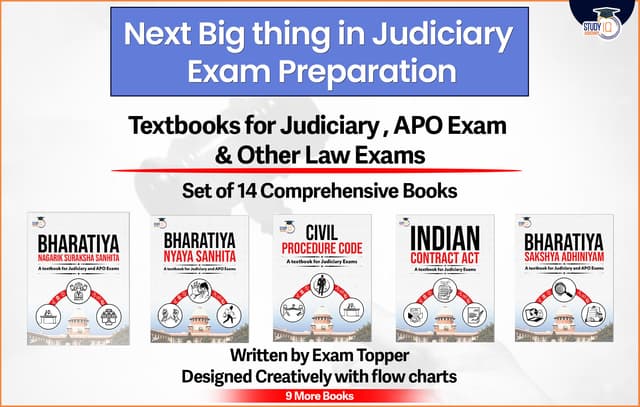Table of Contents
The integrity of electoral procedures is fundamental to representative democracy. In India, a nation that boasts the title of the world’s largest democracy, elections function not only as a means of power transition but also as an evaluation of institutional integrity. The ongoing existence of inconsistencies in voting lists, such as inaccuracies, duplications, ineligible entries, and ghost voters, elicits significant concern regarding electoral fraud, voter impersonation, and multiple voting. These deficiencies compromise public confidence in the system, diminish the legitimacy of democratic institutions, and cast doubt on both the Election Commission of India (ECI) and political parties, which collectively have the duty to preserve democracy.

The Election Commission of India: Constitutional Mandate
- The Election Commission of India (ECI) is a constitutional body created under Article 324 of the Indian Constitution, which grants it the authority to “superintend, direct, and control the conduct of elections” for Parliament, State Legislatures, and the offices of the President and Vice-President of India.
- As an autonomous entity, it is intended to serve as the custodian of equitable and impartial elections.
- The Election Commission of India (ECI) comprises the Chief Election Commissioner (CEC) and additional Election Commissioners chosen by the President.
- Independence: To protect its autonomy, the CEC possesses security of tenure, subject to removal only through a procedure akin to that of a Supreme Court judge (Article 324(5)).
- Functions: These encompass the creation of electoral rolls, monitoring of campaign expenditures, enforcement of the Model Code of Conduct, recognition of political parties, and supervision of electoral changes.
- The Constitution’s founders conceived the ECI as an impartial arbitrator, transcending partisan politics. For decades, it executed this function proficiently, garnering popular trust and global esteem. Nonetheless, recent controversies indicate a credibility dilemma.
A decline in Credibility
- The 1990s marked the pinnacle of the ECI’s strength under T.N. Seshan, who elevated the institution to one of the most formidable electoral regulators worldwide. Throughout this period:
-
- The Model Code of Conduct was implemented with unparalleled rigour.
- Electoral Photo Identity Cards (EPIC) were implemented to reduce fraudulent voting.
- The oversight of electoral expenditures has become increasingly systematic.
- Public surveys routinely identified the ECI as one of India’s most reputable institutions.
- Nonetheless, the credibility has diminished in recent years. The ECI has purportedly chosen secrecy over rectifying discrepancies in election registers, so limiting oversight and fostering doubts over its impartiality.
- This “fall from grace“ has diminished its moral authority, with allegations of bias and institutional decline compromising its legacy.
Political Parties and Self-Destruction
- Although the ECI holds constitutional accountability, political parties are similarly implicated in the degradation of electoral trust.
- Historically, local campaigning required significant labour, encompassing door-to-door outreach and community involvement. Nonetheless, this framework of local democratic responsibility has diminished:
Digital Campaigning and Technology
- Political parties increasingly depend on social media marketing, AI-powered chatbots, and centralised digital outreach.
- Although these methods are effective, they foster a façade of connection between constituents and leaders, substituting profound local involvement with shallow digital exchanges.
Emergence of Professional Consultants
- Campaign plans are progressively delegated to professional consultants who emphasise data analytics and messaging rather than local accountability.
- This strengthens authority within the party leadership and excludes grassroots workers who formerly served as overseers of electoral integrity.
Deterioration of Local Party Infrastructure
- Local organisations, previously essential for identifying discrepancies such as voter list inconsistencies, have been disregarded. The lack of vigilance accounts for the unaddressed large-scale electoral anomalies.

The Function of Booth Level Agents (BLAs)
To address these deficiencies, the ECI implemented the Booth Level Agents (BLAs) system, mandating recognised political parties to designate local representatives to examine electoral records.
Functions of Biologics License Applications
- Examine draft rolls meticulously.
- Assist in rectifications, eliminations, and rearrangements of voters.
- Guarantee the precision of the voter registry at the community level.
Protective measures
-
- Prohibition of mass applications, except among family members.
- Biologics License Applications are restricted to the submission of 10 applications per day.
- Should more than 30 applications be submitted during a revision, the Electoral Registration Officer is required to physically authenticate them.
- These provisions establish a strong basis for transparency. However, actual irregularities, shown by those observed in the Mahadevapura Assembly constituency in Karnataka, reveal systemic manipulation, institutional bias, and the neglect of political organisations.
- This failure raises pressing inquiries: Are some BLAs preferred by incumbents? Are parties intentionally disregarding oversight to exploit loopholes? Have political parties exchanged institutional accountability for electoral convenience?
Erosion of Democratic Confidence
- Electoral anomalies compromise not only elections but also the very basis of democracy. Once eroded, public trust is challenging to restore.
- Historical evidence illustrates that weakened local organisations undermine democratic commitments. For instance:
- Subsequent to Independence, the local factions of the Congress party conspired with influential groups to undermine land reforms, thwarting agrarian justice.
- Today, parties lacking vigilant local organisations jeopardise not only electoral success but also the very essence of democracy.
- When institutional leaders choose immediate political advantages over impartiality and self-discipline, they undermine the credibility of democracy and weaken constitutional institutions from within.
The ECI inside the Global Framework
- Electoral management bodies (EMBs) are essential organisations that uphold democratic legitimacy worldwide. The United Nations, International IDEA, and the Commonwealth have consistently underscored the significance of autonomous Electoral Management Bodies (EMBs) in fortifying democracy.
- The Independent Electoral Commission of South Africa is acclaimed for its transparency and trustworthiness in managing the transition from apartheid.
- The Instituto Nacional Electoral (INE) of Mexico is an autonomous entity that mitigates executive influence.
- The Federal Election Commission (FEC) of the United States, notwithstanding its institutional frailty, underscores the difficulties posed by partisanship in electoral regulation.
- In this context, the Election Commission of India was previously regarded as a global exemplar.
- Nonetheless, its diminishing credibility now elicits international concerns, especially regarding global democratic regression. The decline of ECI’s authority undermines India’s soft power as the “largest democracy“ and compromises its moral position in promoting democratic principles internationally.
Restoring Electoral Integrity: A Way Forward
The ongoing controversy offers a unique chance for resurgence:
Reviving Local Party Organisations
- Political parties must reinvest in grassroots organisations and actively participate in voter list examination. The recent instance in Kerala, where parties have identified duplicate and numerous voter IDs, illustrates heightened scrutiny.
Institutional Transparency
- The ECI must adopt transparency rather than opacity. Subjecting election rolls to examination, promoting independent audits, and guaranteeing impartiality will reestablish credibility.
Enhancing BLAs and Local Accountability
- Training, empowering, and ensuring accountability for BLAs will augment trust. Parties must guarantee their active involvement in maintaining the accuracy of the election rolls.
Constitutional Morality and Impartiality
- Leaders must reaffirm the constitutional concept of neutrality established in Article 324. Institutional endurance relies on adherence to both codified and non-codified constitutional principles.
- The democratic legitimacy of India is founded on the integrity of its elections. The Election Commission of India, once an advocate of electoral integrity, now faces a collapse that jeopardises the foundation of representative democracy.
- Political parties also bear responsibility for facilitating self-sabotage by disregarding local organisations and prioritising quick solutions over thorough due diligence.
- However, the precautions are not absent. Constitutional provisions, institutional structures, and mechanisms like Booth Level Agents offer a blueprint for revitalisation. The solution is in reinstating openness, enhancing grassroots engagement, and confirming constitutional integrity.
- India’s standing as the world’s largest democracy in the international sphere depends on the integrity of its elections.
- To uphold the promise of democracy, both the ECI and political parties must operate with vigilance, integrity, and dedication to the essence of the Constitution. The alternative is a superficial democracy, characterised by institutions that appear to exist but lack genuine substance.

 Faster Is Not Fairer: Reassessing POCSO ...
Faster Is Not Fairer: Reassessing POCSO ...
 Prevention of Corruption Act, 1988: Evol...
Prevention of Corruption Act, 1988: Evol...
 The Securities Markets Code, 2025: Conso...
The Securities Markets Code, 2025: Conso...



















